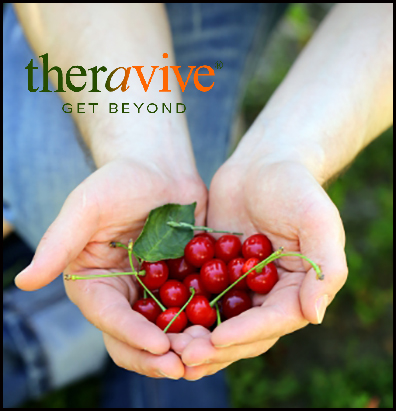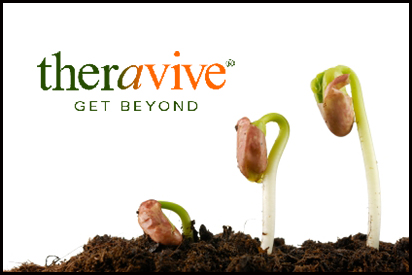 Emotionally healthy individuals have a firm control over their emotions and responses. These people better understand their surroundings and thus are better able to tackle challenging situations. These abilities give them the strength to quickly recover from setbacks and build strong relationships with others. There are few in the world who inherit this talent, otherwise it takes conscious efforts to build and sustain good emotional and mental health. People are not born with social and emotional skills, they need to acquire them in order to excel.
Emotionally healthy individuals have a firm control over their emotions and responses. These people better understand their surroundings and thus are better able to tackle challenging situations. These abilities give them the strength to quickly recover from setbacks and build strong relationships with others. There are few in the world who inherit this talent, otherwise it takes conscious efforts to build and sustain good emotional and mental health. People are not born with social and emotional skills, they need to acquire them in order to excel.
What is Emotional Health?
Emotional wellbeing refers to the overall psychological condition of a person. It is highlighted through the quality of relationships, self-esteem, self-image, courtesy, emotional intelligence, and the ability to handle critical situations. People who are prone to stress, anxiety, and depression miss out on many good things in life while frowning over their temporary problems. It certainly does not mean laughing aloud during grief – it is about managing your emotions even if you are getting negative vibes from a person or situation.
Occupational therapists use various techniques to teach patients these essential skills of happiness, and gardening is one of them. Horticultural therapy includes planting, building, and harvesting gardens to change behaviors. Scientists have concluded that gardening affects the mind by calming the nerves and reducing stress. It controls and balances Cortisol in the body to normalize the disturbances of biological mechanisms.
Emotional Health and Gardening
According to Austin et al. (2006), leisure activities like gardening provide many emotional health benefits through increased interaction, patience, and physical exercise. Here, the reference is perhaps made to the restorative benefits of gardening that bring peace and tranquility. Staying close to nature and its living miracles itself is therapeutic. It spiritually nurtures people and allows them to connect with their inner self on a fundamental level. Walking in the garden, talking to other people, being involved in a physical activity, and observing nature really pays off in terms of personal growth. According to Pretty (2004), active involvement and participation in gardening or farming can deliver considerable mental health benefits.
The purpose of using gardening as a source of behavioral learning is to bring people closer to Mother Nature. Things that generally keep people from positive thinking are mostly artificial aspects of life, such as the race for status, competition, and rivalry. Outdoor learning provides opportunities to improve a sense of achievement and EQ (emotional intelligence). When working on a landscape project in a group setting, it results in many emotional health benefits, including relationship building, trust, responsibility, problem solving skills, managing stress, and self-confidence. During a research study, it was found that carefully planned outdoor learning and being engaged with nature (in the form of gardening) do not only boost thinking skills, but also develop harmonious social behaviors (Mirrahimi et al. 2011).
 Learning to be Patient
Learning to be Patient
The positive features of gardening allow a person to participate in life through productive and meaningful activities. From feeding the soil to the selection of plants and from sowing the seeds to seeing the plant grow, all processes are slow yet pleasurable and teach people the value of being patient. It also improves stamina and the ability to think clearly. A person gets to learn how setting targets and working towards them each day brings destiny closer.
A Meditative Practice
Social scientists have managed to define a direct relationship between mental rehabilitation and landscaping. Perhaps this is the reason why more and more hospitals and rehabilitation centers are incorporating parks in their basic design structure. People who engage in gardening activities do not revert to destructive activities; rather, they change themselves for the better. Gardeners who actively participate in landscaping activities experience positive mental health outcomes (Community Food Centers, 2014).
Strong Relationships
The way you treat others is a hallmark of your own well-being. It has more to do with your own state of mind, rather than what people think of you. When a person starts viewing others negatively, it becomes difficult to be a productive part of society. Gardening is a soulful experience, which removes communication barriers between two individuals. In the world of psychology, it is known as Prosociality (Twill et al. 2011). It is your ability to understand other’s feelings and emotions. Once you reach that point of compassion, helping others becomes a permanent part of your personality.
Gardening and Changes in Mental Health and Behavior
Here are some of the changes that you might experience after working with soil and seeds:
· A sense of achievement and satisfaction
· Better stress management
· Improved problem solving skills
· A sense of meaning and purpose in life
· The ability to communicate and understand others
· Increased flexibility with less resistance to change
· High self esteem
· Sympathetic towards others
Being psychologically healthy doesn’t assure that there won’t be any bad times in life; instead, it provides you with the strength to face disappointments.
_________________________________________________________________________________________________________________________________
Austin et al. (2006). Community Gardening in a Senior Center: A Therapeutic Intervention to Improve the Health of Older Adults. Therapeutic Recreation Journal. 40 (1).
Pretty, J. (2004). How nature contributes to mental and physical health. Spirituality and Health International. 5(2). 68-78.
Mirrahimi et al. (2011). Developing Conducive Sustainable Outdoor Learning: The Impact of Natural environment on Learning, Social and Emotional Intelligence. Procedia Engineering. 20. 389-396.
Twill et al. (2011). Weeds and Seeds: Reflections from a Gardening Project for Juvenile Offenders. Journal of Therapeutic Horticulture. 21(1).
Community Food Centers, Canada . (2014). Mental health benefits of community gardening. Available: http://thepod.cfccanada.ca/sites/thepod.cfccanada.ca/files/Gardening%20%26%20Mental%20Health%20Outcomes.pdf. Last accessed 29th April 2014.
Christie Hunter is registered clinical counselor in British Columbia and co-founder of Theravive. She is a certified management accountant. She has a masters of arts in counseling psychology from Liberty University with specialty in marriage and family and a post-graduate specialty in trauma resolution. In 2007 she started Theravive with her husband in order to help make mental health care easily attainable and nonthreatening. She has a passion for gifted children and their education. You can reach Christie at 360-350-8627 or write her at christie - at - theravive.com.